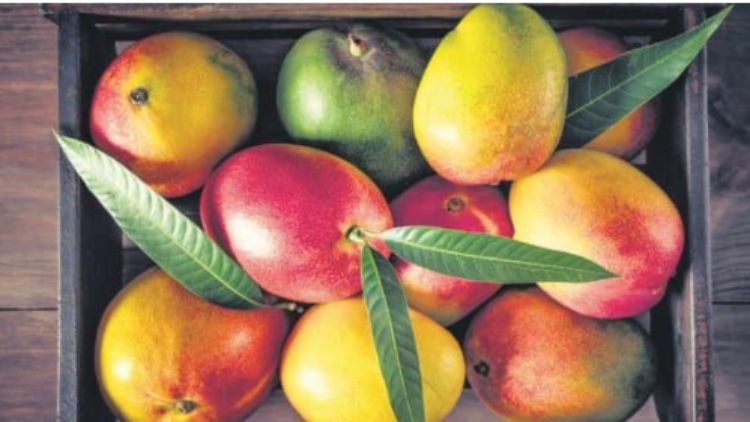
Andalib Akhter/New Delhi
Notwithstanding challenges due to the COVID-19 pandemic, Indian farmers have kept the flag of the economy flying high with record growth in production.
Apart from catering to domestic need, agricultural products including fruits and the processed foods are being exported to many countries including the US, countries of the Middle East, and the EU without fail.
Unlike other commodities, the COVID-19 induced movement restrictions worldwide did not affect India’s agri-exports. The agriculture exports ghave continued unhindered due to the strict adherence to the guidelines issued by the government.
India’s agri-exports increased from Rs. 38,078 crores in 2004-05 to Rs. 2.7 lakh crores in 2018-19, an increase of nearly 7 times in the span of 15 years. However, next year, there was a drop of around 8%. However, in the year 2020-21, agri-exports registered a handsome growth.
Mango in demand
The King of fruits, mango, is the flavour of the season when it comes to exports during the Covid-19. The authorities have set a target of exporting 5,000 metric tonnes (MT) of mangoes this year. India recently shipped a consignment of 2.5 Metric Tonne (MTs) of GI certified Banganapalli and other variety Survarnarekha mangoes sourced from farmers in Krishna and Chittoor districts of Andhra Pradesh to South Korea. Seoul is likely to order more Indian mangoes this season. IFFCO Kisan SEZ has an agreement with Meejaim, South Korea for supplying 66 MTs of mango this season. Andhra Pradesh horticulture department also collaborated in this endeavour.
Already, 30 MTs of mangoes have been exported to the EU, UK, Ireland, and the Middle East countries.
While mango is cultivated across India, Uttar Pradesh, Bihar, Andhra Pradesh, Telangana, and Karnataka are considered major producers of this delicious fruit.
Alphonso, Kesar, Totapuri and Banganpalli are leading export varieties from India. Besides the fruit, mango pulp and mango slices are also exported.
Tripura Jackfruits to London
A shipment of 1.2 metric tonnes (MT) of fresh jackfruit has been exported from Tripura to London. Jackfruits were sourced from the Tripura based Krishi Sanyoga Agro Producer Company Ltd. The consignment was packed at The Agricultural and Processed Food Products Export Development Authority (APEDA) assisted pack-house facility,
Recently, the first consignment of ‘red rice’ was also sent to the USA from Assam. Iron-rich and organic ‘red rice’ is grown in the Brahmaputra valley of Assam. The rice variety is referred to as Bao-dhaan, which is an integral part of Assamese food.
Chikoo to the UK
A consignment of Dahanu Gholvad Sapota (Chikoo) from Palghar, Maharashtra, was exported to the United Kingdom.
GI certification of Gholvad Sapota is held by Maharashtra Rajya Chikoo Utpadak Sangh and the fruit is known for its sweet and unique taste derived from the calcium-rich soil of Gholvad village.
Currently, in the Palgahr district, around 5000 hectares of land is under chikoo plantation. Out of 5,000 farmers who grow it, 147 are the authorized GI users.
Sapota is grown in many states- Karnataka, Gujarat, Maharashtra, Tamil Nadu, West Bengal and Andhra Pradesh. Karnataka is known to be the highest grower of the fruit, followed by Maharashtra.
Millets to Denmark
In a major boost to exports of organic products, the first consignment of millets grown in the Himalayas, Uttarakhand, would be exported to Denmark.
“Millets are unique agricultural products from India which have significant demand in the global market. We will continue to carry out export promotion for the millets with a special focus on products sourced from the Himalayas,” Dr M Angamuthu, Chairman, APEDA, said.
The exports of millets to Denmark would open opportunities across Europe and encourage thousands of farmers who have taken to organic farming. Millets are the new superfoods for their high nutritive value and being gluten-free.
India's share in the global agriculture export market is a mere 2.5%. However, the demand is increasing, and it's so because of the state-of-the-art cold chain and other infrastructure being laid out. The public sector has also taken initiatives in boosting agri-exports by setting up several centres for perishable cargoes.
